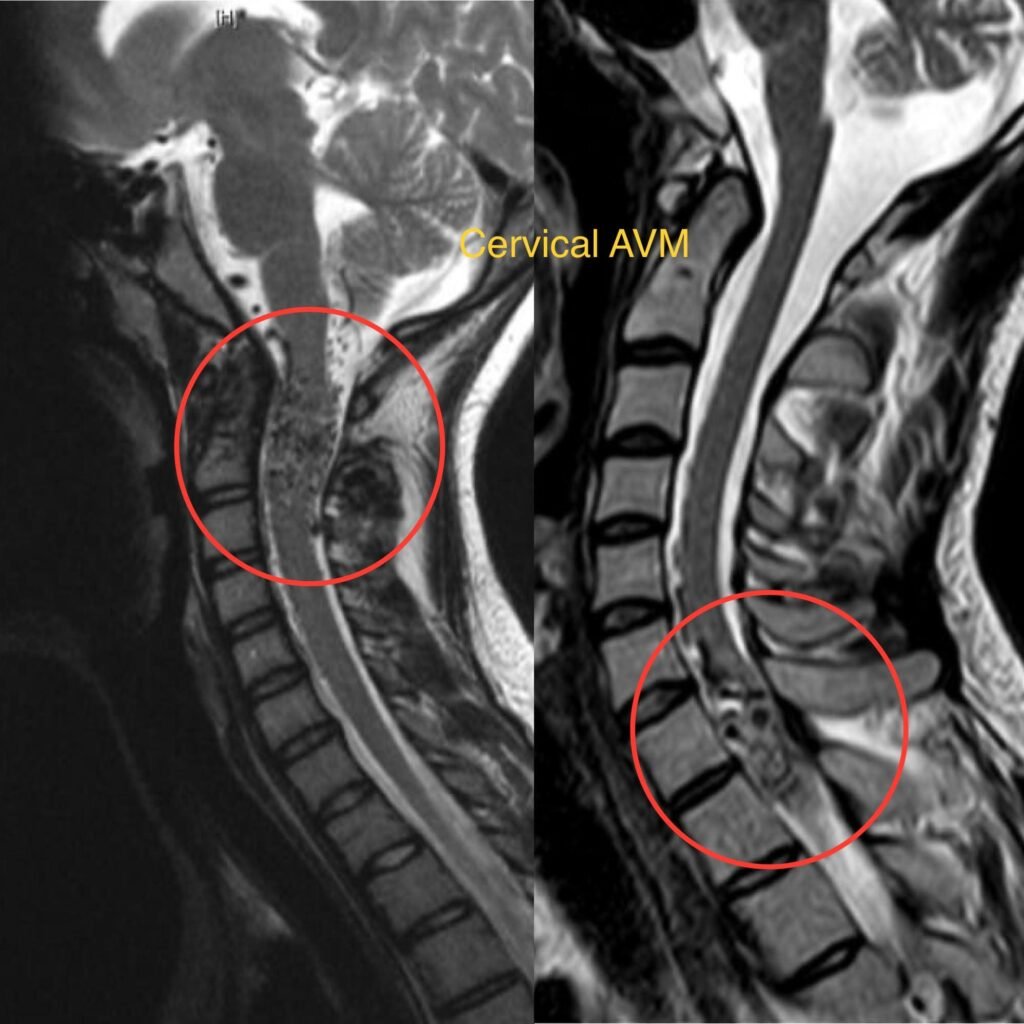Spinal Arteriovenous Malformation (AVM)

What is it?
Spinal Arteriovenous Malformation (AVM) is a rare vascular abnormality characterized by tangles of abnormal blood vessels in the spinal cord. These abnormal blood vessels disrupt normal blood flow, leading to various neurological symptoms.
Symptoms:
- Symptoms of Spinal AVM can vary depending on the size, location, and severity of the malformation.
- Common symptoms may include back pain, numbness or weakness in the limbs, difficulty walking, loss of bowel or bladder control, and in severe cases, paralysis.
Primary Symptoms:
The primary symptoms of Spinal AVM may include:
- Progressive numbness or weakness in the arms or legs, typically on one side of the body.
- Difficulty with balance and coordination, leading to frequent falls or difficulty walking.
- Changes in bowel or bladder function, such as difficulty urinating or controlling bowel movements.
- Pain in the back or neck, which may worsen with movement or activity.
- Progressive neurological deficits, such as paralysis or loss of sensation.
Diagnosis/Treatment:
- Diagnosis typically involves a thorough medical history, physical examination, and imaging studies such as MRI or angiography to visualize the abnormal blood vessels.
- Treatment options may include observation, embolization (blocking the abnormal blood vessels), surgery to remove the malformation, or radiation therapy to shrink the AVM and reduce symptoms.
What to Expect After Surgery:
- After surgery for Spinal AVM, patients can expect relief from symptoms such as pain, numbness, weakness, and neurological deficits.
- Recovery time varies depending on the extent of the surgery and the individual patient’s condition, but most patients can expect to gradually improve over several weeks to months.
- Physical therapy may be recommended to help regain strength, mobility, and function in the affected limbs.
Risk & Complications:
- As with any surgery, there are risks associated with procedures to treat Spinal AVM, including infection, bleeding, nerve injury, spinal fluid leakage, and complications related to anesthesia.
- Additionally, there may be a risk of incomplete removal of the malformation, recurrence of symptoms, or complications specific to the underlying vascular abnormality.
- However, complications are relatively rare, and the benefits of surgery often outweigh the risks, particularly when conservative treatments have failed to provide relief or when there is evidence of progressive neurological deficits that require surgical intervention.
Spine Treatments
About Dr. Bharat
Dr Bharat Shinde completed his M.Ch Neurosurgery from the National Institute Of Mental Health And Neurosciences (NIMHANS), Bangalore which is an institute of National importance.
